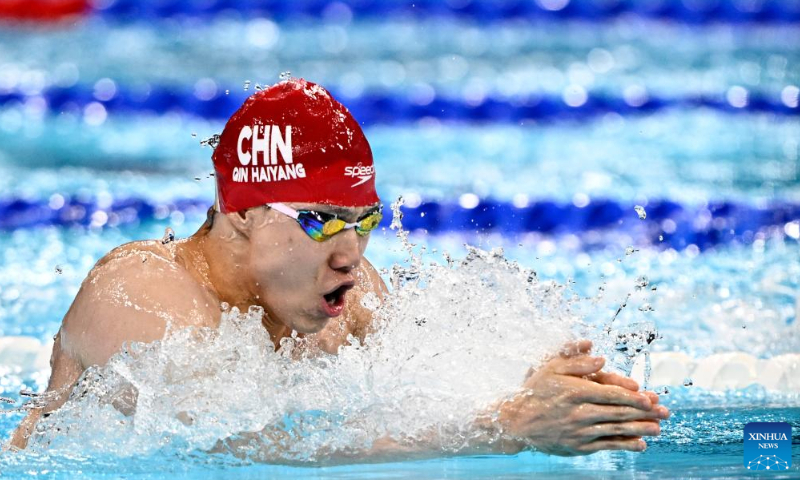Unfair scrutiny might hamper China's Olympic swimmers' performances

The Chinese swimming team's recent performances at the Paris Olympics have raised concerns about the impact of excessive doping tests on their preparation and performance.
Butterfly specialist Zhang Yufei's third-place finish in the women's 100 meters butterfly and breaststroke world champion Qin Haiyang's unexpected seventh-place result in the men's 100 meters breaststroke were the most discussed results on Chinese social media. It is imperative to scrutinize the conditions under which they have been competing, particularly the frequency and timing of these tests, netizens said.
Olympic diving champion Gao Min has raised questions, claiming that the Chinese swimming team is subject to up to seven doping tests a day. She argues that these procedures, while ensuring fair play, might inadvertently hinder the performance of Chinese swimmers.
A glimpse into the daily routine of these athletes, unveiled by a Chinese volunteer on social media, shed a light on the taxing nature of their schedule.
At the Athletes Village in Paris, Chinese swimmers Zhang and Yang Junxuan wait at the Doping Control Center (DCC) as early as 5:30 am, while DCC agents and volunteers often have to go to the rooms of other athletes who are reluctant to take tests that early. The Chinese athletes, however, never opt for the easier route of delaying the tests, demonstrating their commitment to full compliance.
Despite securing the bronze medal and breaking the Asian record in the women's 4x100m freestyle relay, Zhang emphasized the importance of transparency and cooperation with anti-doping agencies, despite the inconvenience and emotional strain of early morning tests.
Facing international media, fellow Chinese swimmer Fei Liwei also confidently reiterated the team's dedication to clean competition and rigorous training after setting a new personal best in the men's 400 meters freestyle.
As the narrative unfolds, it becomes evident that the Chinese athletes are caught in a dual struggle - striving for excellence while navigating an environment of intense scrutiny. The call for fairness in doping tests is not about seeking leniency but about ensuring that the spirit of competition remains just and equal for all.
While multiple factors influence athletes' performances, minimizing out-of-competition impacts is crucial. Ensuring fair and equal conditions will not only support the athletes but also enhance the overall excitement and integrity of the competition, thrilling fans worldwide.